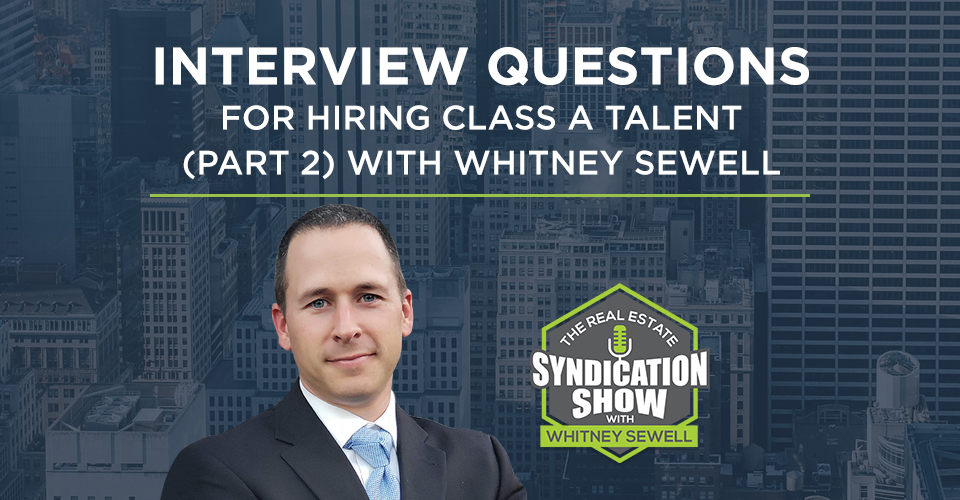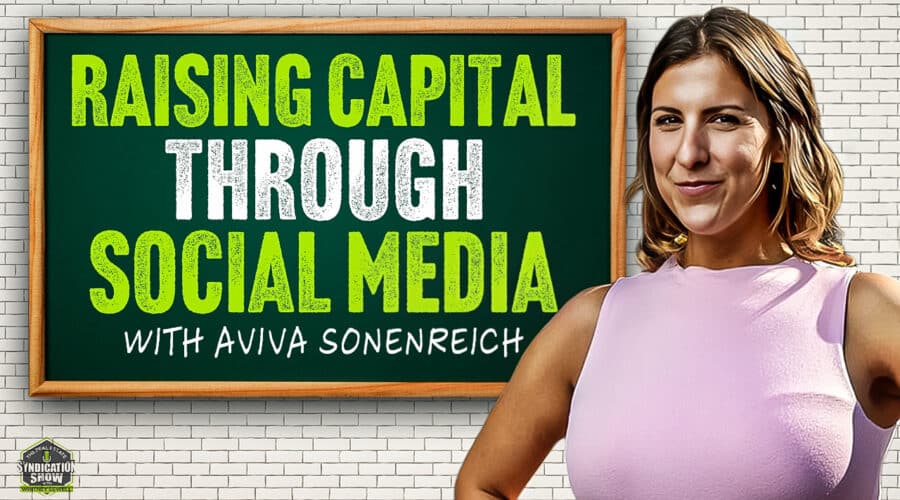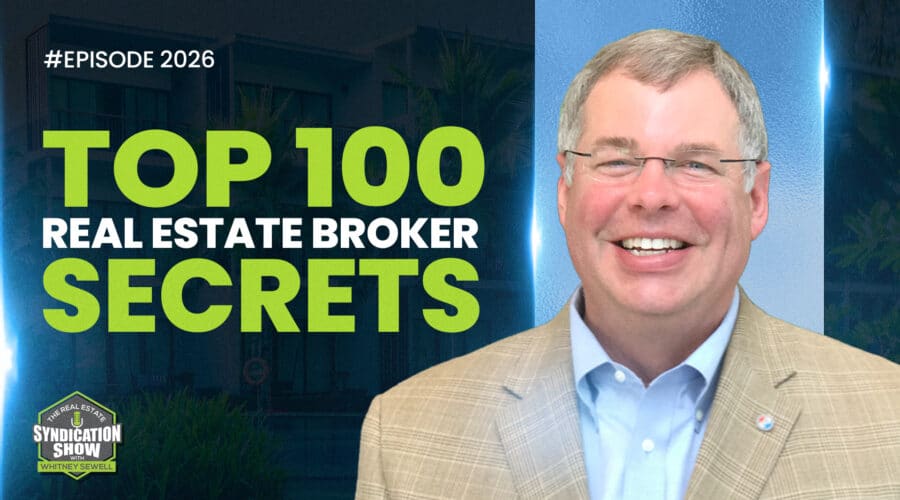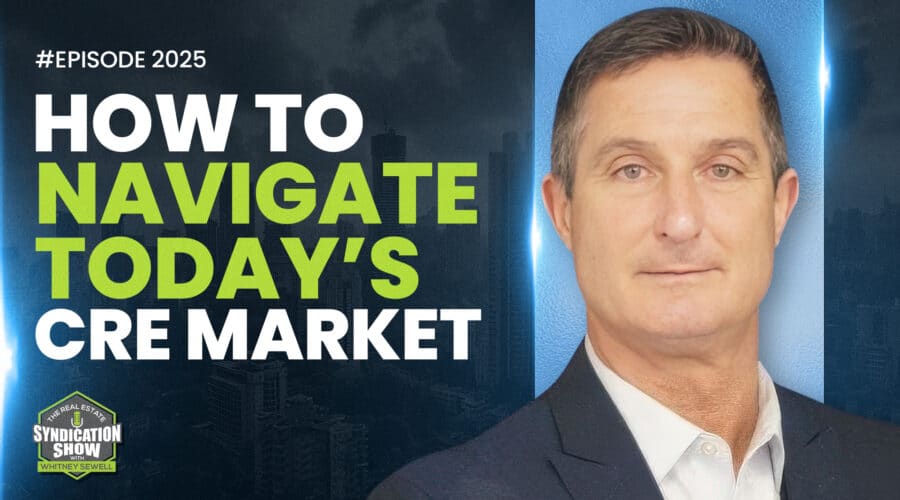Welcome back to another episode of our mini-series on the hiring process! Again, a lot of this information comes from the book Topgrading by Bradford D. Smart. It’s so critical that you hire the right person so that you avoid the cost of hiring the wrong one.
Watch the episode here:
Listen to the podcast here:
We are continuing on from the previous episode, going through the different episode questions. We left off last week at risk-taking; what the biggest risks were that they’ve taken in recent years. So stay tuned for the next section of questions as Whitney goes through the hiring interview process they recently implemented with success.
Key Points From This Episode:
- Whitney gives us a recap of the previous episode; questions from the interview process.
- We continue on with the questions, going on from where we left off: risk-taking.
- Ask the candidates about best practices: how they do anything they do.
- How their best practices have impacted or addressed client needs: tailor it to your position.
- How computer literate are they?
- What seminars or formal education have you participated in and when?
- Are they knowledgeable about things: how is their reading? Are they keeping on top of things?
- Ask them about the most important lessons they have learned throughout their career: be specific.
- Ask them open-ended questions about their most and least successful jobs.
- Describe a situation or two in which, the pressures to compromise [their] integrity were the strongest [they] have ever felt.
- Ethics: what are a couple of most courageous actions or unpopular stands you have ever taken/ have you ever confronted unethical behavior or chosen not to rock the boat?
- Resourcefulness questions: ask about specific questions and actions they implemented.
- How they went beyond the call of duty: are the batteries included?
- Whitney talks about the book Who Moved My Cheese: what are they afraid of?
- Ask about major career influences and why.
- Ask them about their organizations, their preferred initiation tactics, hammering out results.
- You want to get to know how they think, how they work, and their work habits.
- How they work with others; are they a team player?
- How they handle the fear of failure: do they ask permission first or forgiveness later.
- You want to perhaps ask them about their emotional reactions or responses: frustration, humor, how do they handle themselves.
- How they handle a difference of opinion; ask them about examples of these situations.
- You want to ask about communication and how are their virtual skills.
- How they structure their personal and professional goals: how they drive their performance.
- Ask for examples of when their leadership or opinion was challenged.
- Ask about what motivates them and leave it opened ended.
- Why it is important to take notes throughout the interview and how they help the interview process.
[bctt tweet=”The more knowledgeable the candidate is, and the more they’re staying up to date on these [all] things, the better. —@whitney_sewell” username=”whitney_sewell”]
Links Mentioned in Today’s Episode:
RESS Episode 800 with Whitney Sewell
RESS Episode 850 with Whitney Sewell
RESS Episode 857 with Whitney Sewell
About Whitney Sewell
Whitney Sewell is a country boy from rural Kentucky. He grew up riding horses and has always driven a Chevy truck. He is a veteran of the Army National Guard and spent all of 2005 deployed in Iraq, awarded the Soldier of the year that year. When he arrived home, he began working for the Kentucky State Police and courting his lovely wife, to whom he’s been married for 10 years. Whitney and his wife, Chelsea, have three children who came to their family by adoption.
They began investing in real estate in 2009 when it became clear that a career in law enforcement was not going to afford them the ability to live off one income as they desired. In 2017, they started Life Bridge Capital LLC, working with accredited investors and helping them improve their investment returns via the exceptional opportunities that multifamily syndication offers. Whitney has always had a passion for both real estate and helping others, and Life Bridge Capital LLC affords him the opportunity to do both, while also funding a very important cause that has become deeply personal. Through working with Whitney, investors not only receive exceptional returns financially but also change both the lives of orphans around the world and the lives of the families who adopt them.
Whitney is quick to point out that while this is his own passion, he doesn’t make this the main focus to investors, but does hope a certain percentage feel good about what Life Bridge Capital does. “We provide a fantastic return for our investors, and that’s why someone should invest with us first and foremost. However, it is my hope that this component of our business – us giving 50% of our own profit to adoption – perhaps helps sway someone to work with us, assuming all else is equal, of course. This is our calling, but our investors can smile knowing that just by working with us, they helped a little bit too.” They have now invested in over 900 doors valued at over $120 million.
Whitney is the host of The Real Estate Syndication Show, a daily podcast where he interviews experts in the real estate syndication business and provides essential content for his listeners. Life Bridge Capital’s motto is: making a difference, one investor, one child, at a time.
Full Transcript
[INTRODUCTION]
[0:00:00.0] ANNOUNCER Welcome to the Real Estate Syndication Show. Whether you are a seasoned investor or building a new real estate business, this is the show for you. Whitney Sewell talks to top experts in the business. Our goal is to help you master real estate syndication.
And now your host, Whitney Sewell.
[INTERVIEW]
[0:00:24.4] This is your daily Real Estate Syndication Show. I’m your host Whitney Sewell. Thank you again for listening to the show, I’m always grateful just to see our numbers rising, to see the show growing, I hope we are providing a ton of value to you in your syndication business and just learning about commercial real estate and just learning from all the experts in this business that we can possibly find.
I hope that you are enjoying that. Again, if you have any suggestions on how to make the show better, if you let me ask any other questions of this guest, will you email us at [email protected] and I would love to hear some more feedback, I would love to hear those questions that you would like me to ask or if you have a guest that you would like me to have on the show or somebody, a suggestion, somebody that you would like me to interview, you can always recommend them through [email protected] or you can also send them to the podcast page at LifeBridgeCapital.com and they can apply there.
There’s a button there where you can apply to be a guest on the show and we would love to talk to you or consider you for a guest if you are in this business or can help people in this business. Again, thank you for listening, I am so grateful just for the show continuing and for the growth that we have been experiencing. Thank you again.
[0:01:37.8] I’m continuing today in this interview of this candidate, right? It was – this is like a part two of the interview process or questions anyway of a mini-part series where I’ve talked about how we’ve hired someone recently and things I’ve learned through the hiring process.
Again, a lot of this comes from the book Topgrading by Bradford Smart. I’m giving them credit just because much of this comes from there and things that I’ve learned from that book. I encourage you to have that in your office and go through it, it’s on Audible as well but I have both. I listened to it and I went back and I bookmarked certain sections and went back in the book and would underline and highlight specific things that I knew that were important to us.
So much of it tells you about the importance of hiring the correct person, right? Or the cost of the mis-hire and helping you to calculate that. It’s so important and for you to think through and that’s why a lot of people never get started hiring because of the fear of the mis-hire.
I’m going to have to fire that person or they’re going to leave, I’m going to have to do it all over again and you’re probably right, honestly. You’re probably right, I’ve had numerous assistants. But we have grown every time, I’ve gotten a better one every time.
[0:02:48.3] Somebody with more skills, I’ve been able to afford to pay this person a little more. I’ve gotten more experience out of different people that we’ve hired, the further we’ve gotten. This is the first time I’ve used this method and we probably only use a third of the entire Topgrading method but we learned so much. I did, by going through this but I’m going to continue on the interview questions from last week’s episode.
You can hear these and you can be thinking through some questions that you need to ask when you are interviewing this next candidate for whether it’s an assistant position or whatever it may be. This helps you to think through again, the character of this individual.
I shared about that on last week’s show, just about understanding the character of this person and how they became who they are, so important to me. I’m going to continue. Last week I think we left off at risk-taking and ask them, “What are the biggest risks you have taken in recent years?”
Or in the recent year even or you can narrow that down. See what they say and then ask them to include ones that have worked out well or ones that have not worked out so well. Ask them some best practices that they’ve adopted or things that they have learned recently. It can be very open-ended.
[0:03:59.8] It could be about anything, any best practices and how they do anything that they do really. If they have a specific skill that you’re hiring them for then obviously you could devote it to that. Describe projects in which your best practice solutions did and did not fully address customer client needs.
Again, some of this, you would, you need to add it for your position. You need to think through exactly what you’re hiring for. How computer literate are you, please describe your professional network, a lot of that can say a lot about somebody, we’ve talked about that much on the show. Just about how important your network is.
What seminars or formal education have you participated in and when? Describe your reading habits. Books, articles, general business, what are they reading? I think that tells a lot about someone as well. You can learn a lot by how often are they reading, how disciplined.
We talked about that in the last show as well. Are they knowledgeable about specific things, are they staying up to date on different things about these skillsets? Like I said, depending on what you’re hiring them for, some industries, you just have to stay so in-depth in reading and understanding what’s happening today to be current.
[0:05:09.3] Not all of them are that way but most. The more you’re knowledgeable, the more you’re staying up to date on these things, the better, right? What are their reading habits? What are they reading? What are the most important lessons you have learned in your career?
Get specific, when they start talking about something, ask them, when, where, what, right? How, all those things and what did you learn? Ask them, get more specific, leave it open-ended at first but then get more specific. I’ll say, “Looking back in your career, what were your most and least successful jobs?” Leave it wide open.
You might say, “Describe a situation or two in which, the pressures to compromise your integrity were the strongest you have ever felt?” It’s interesting, some responses I receive from that and “What are a couple of most courageous actions or unpopular stands you have ever taken?” When have you confronted unethical behavior chosen to not say anything in order to not rock the boat?”
“Under what circumstances have you found it unjustifiable to break confidence? What actions would you take in the first weeks should you join our organization?” Now, we’re going to get into some resourcefulness questions about what sort of obstacles have you faced in your most recent job and what did you do?
[0:06:29.1] What are examples of circumstances in which, you were expected to do a certain thing and on your own, went beyond the call of duty? Right? We want to know about this person to the extent of how did they go beyond the call of duty?
That’s somebody that I’ll want, I think it stands all of them. I’ve talked about it in one of the earlier shows, it talks about hiring somebody that the batteries are included, right? You want those batteries included, I want somebody that I’m not having to hold their hand all the time or motivate them to figure out that next thing or I don’t want somebody that’s going to ask me about every detail.
I want them to push themselves and here’s another thing, even if they’re pushing themselves and they make a few mistakes, hey, it’s okay. I’d rather they didn’t make mistakes but I would rather them make the mistakes because they are trying hard as supposed to not trying at all or putting forth much effort, right?
Me, having to motivate them. I do not want them to be crippled by fear. It reminds me of the book, which I’ve said many times, Who Moved My Cheese? If you’ve not read that book, it’s very short read and they have a child’s version, you should get it for your children. I read it to my boys often, there’s even Audible version that we listen to in the truck sometimes when they’re riding with me somewhere but there’s one statement in there says, “What would you do if you were not afraid?”
[0:07:38.5] What would you do if you were not afraid? We want to think through these things and how do they perform even if they have some fear. “Who have been your major career influences and why?” It’s a big one, again, we asked earlier about some of their school influences, things like that, professors, whatever, friends, parents.
Even in their careers, who has been their biggest influences and why? Are you better at initiating a lot of things or hammering out results for fewer things or hammering out results for fewer things? How organized are you? How do you do to be organized and what do you do? What do you do to be organized and what? If anything.
How could you be better organized? I mean, there’s all kinds of things about missing deadlines, you could ask about when they have missed a deadline, what did they do, describe complex challenges they’ve had to coordinate or fix or what do they do to complete that complex challenge or learn or are you better at juggling a number of priorities or projects or just one project at a time.
Even about work habits. What are some work habits that they have? If you were to talk to administrator assistants, you have had during the past several years, how would you, they describe your strengths and weak points with respect to personal organization, communication, attention to detail and planning.
[0:08:57.3] You’re asking, how would other people that you’ve worked with describe these things about you? What would they say about these specific things about you? Obviously, that’s going to be dependent upon what kind off jobs they’ve had and how have you significantly raised the bar for yourself or others?
Do you believe in asking for forgiveness rather than permission or are you inclined to be sure your bosses are in full agreement before you act? It goes back to a little bit what I was talking about a minute ago. You just want to know, what’s their thought process there? Are they going to push themselves or are they going to be hindered by fear of failure or fear of just messing up.
A lot of that’s just how you supervise too. Do you enable your people to push and move the bar forward and let them learn, right? We want them to be prepared, we want to provide training but we never – I never want them to have to ask me about every detail. I mean, I’m hiring them because they are an expert. I’m hiring because they are better at this thing than I am.
Much better. I want them to be able to be specifically focused on that thing. How much supervision do you want or need? What sort of mood swings do you experience? I don’t know that I ask that but I don’t think I did.
[0:10:06.9] What do you do to alleviate stress, how do you handle yourself under stress and pressure? Describe yourself in terms of emotional control, some of these I did not ask just for time sake because there’s some better ones that we get to, that I just felt were much more important that some of these.
Again, unless you have four hours, you’re not going to get to every one of these questions. When were you so frustrated? You did not treat someone with respect. How would you describe your sense of humor? Tell me about a situation, which you were expected to work with a person you disliked?
Some of that could be very useful. How did they handle that situation, what was the task they had to do with this other individual that they didn’t care for and what was the outcome? Were they able to handle themselves well, was its sole success either way, what did they learn about themselves even, during that process?
Many things that we can ask obviously. We want to know if they’re a team player, you can ask things about standing up to the boss, right? We want to know how assertive they are, you can ask them to describe their level of assertiveness.
[0:11:10.9] When there is a difference of opinion — how did they confront people? Directly, indirectly, how did they handle that? Going to ask him for examples. Sometimes that’s good to have an open-ended question just about examples of where they were assertive or anything in that matter.
Just provide some examples of that, it’s kind of a good question when they give an answer about something and they’re not very detailed, you can always say, “Can you give me an example of that? Maybe where you’ve done that recently or in that position, things like that?”
You could ask him about a time when they put their food their mouth, how do they communicate, what were their means of communicating with their – in their previous position, were they even – if they’re going to be virtual, like a virtual assistant or a virtual team member in this position for you.
Have they done that in the past? Have they been virtual before, you want to understand how did they communicate? There’s different ways that we communicate as a team because we don’t see each other. I mean, really, hardly ever. I mean, in person.
[0:12:09.3] We do see each other through Zoom, at least weekly and sometimes numerous times a week but you want to understand how did they communicate in the past, how was that handled and just to ensure that they’re prepared or that they understand that. They don’t have to but it’s helpful if they’ve been in that kind of situation in the past before.
I like knowing too, how does this individual go about establishing goals for a performance and there’s different ways you can ask about that but even some personal goals. What are there some personal and professional goals, maybe they want to hike a big mountain or maybe they want to swim, become a professional swimmer, I don’t know.
Whatever that may be but it just tells a lot about an individual and you can say, “How often are you practicing that or how often are you able to do that?” and it just gives you some insight into this individual and what’s important to them, even outside of work, which could be just good for you to know.vMaybe you have some of the same interest.
Team building, you can ask about have you tried to build teams, what are some roles you’ve had on teams in the past. Again, depending on the type of role you’re hiring for, maybe they need to be good at running meetings, you can ask them about how they’ve done that in the past, you can ask them about different people that they have led.
[0:13:22.5] If they’ve led teams and maybe, even times that their leadership was challenged or maybe their opinion was challenged as they were leading a group or maybe leading other team members, just gives a lot of insight. Conflict management, there’s tons of things that we could talk about conflicts or different people that just do not agree but we want to know really though a couple of things.
You could say, “How many hours you work per week on average or during the last year?” But another question that I like asking is, “What motivates you?” and just leave it open. What motivates you. I think that’s going to tell you a lot about someone.
Then obviously, you’re going to have follow-up questions. “Describe the pace at which you work” we want to know, fast, slow, moderate? How do they see themselves and most people are going to say fast probably? There may be some other follow-up questions there that you can ask.
Any tendencies that they have that you need to ask about. I mean, we can go on and on but that hopefully gives you just many questions to think through, there’s many things there that are going to lead to other questions that you’re going to want to follow-up.
[0:14:27.4] Remember, you are taking notes during this entire time. I do take lots of notes. I take notes during interviews for the podcast, everyone. That also, even during the interview helps me to follow-up with better questions.
But during an interview like this with an individual as a candidate, I’m taking lots of notes and majority of the time. Remember, I’m not just taking notes when they’ve said something. Maybe they aren’t so proud of because obviously they’re going to know that you’re taking notes, or you’re looking away, they see you typing or hear you typing through Zoom meeting.
You want to be taking notes most of the time, you and your business partner, whoever is doing that tandem, completing that tandem interview with you. You want to be taking notes the whole time especially the one that’s not asking that question an they could be just be taking lots of notes during that time and then you’re going to compare those notes later after those interviews and maybe even rank them.
There is a ranking structure as well on this book so you can go through and rank some – I mean, lots of competencies, whether it’s intellectual or personal or impersonable management leadership, motivational. I mean, there’s just lots of ways to start ranking these people and of course, this is built for organizations too that have thousands of employees and that are hiring hundreds and hundreds of people in annual basis or even more.
[0:15:40.9] But many of these things are very useful for you. When you’re making your first hire or your second hire and I think for you, it could even be more catastrophic to have in this hire than some of those organizations when this is a big chunk of income that you’re dedicating to this individual to be full-time or even part time for your organization.
It’s so important that you do these things right. Think through these questions and I hope that this has helped you to think through your interview and allowed you to successfully hire a class-A candidate. I hope you have learned a lot, I hope that you have signed up on LifeBridgeCapital.com, go to the contact us page. I hope to speak to you personally. If you’re looking to invest with an investment firm, I hope you’ve considered us as you listen to this show and we’re looking forward to helping you any way that we possibly can.
Have a blessed day, we’ll talk to you next week.
[END OF INTERVIEW]
[0:16:34.4] Don’t go yet, thank you for listening to today’s episode. I would love it if you would go to iTunes right now and leave a rating and written review. I want to hear your feedback. It makes a big difference in getting the podcast out there. You can also go to the Real Estate Syndication Show on Facebook so you can connect with me and we can also receive feedback and your questions there that you want me to answer on the show.
Subscribe too so you can get the latest episodes. Lastly, I want to keep you updated so head over to LifeBridgeCapital.com and sign up for the newsletter. If you are interested in partnering with me, sign up on the contact us page so you can talk to me directly. Have a blessed day and I will talk to you tomorrow.
[OUTRO]
ANNOUNCER: Thank you for listening to the Real Estate Syndication Show, brought to you by Life Bridge Capital. Life Bridge Capital works with investors nationwide to invest in real estate while also donating 50% of its profits to assist parents who are committing to adoption. Life Bridge Capital, making a difference one investor and one child at a time. Connect online at www.LifeBridgeCapital.com for free material and videos to further your success.
[END]
Love the show? Subscribe, rate, review, and share!
Join the Real Estate Syndication Show Community:






